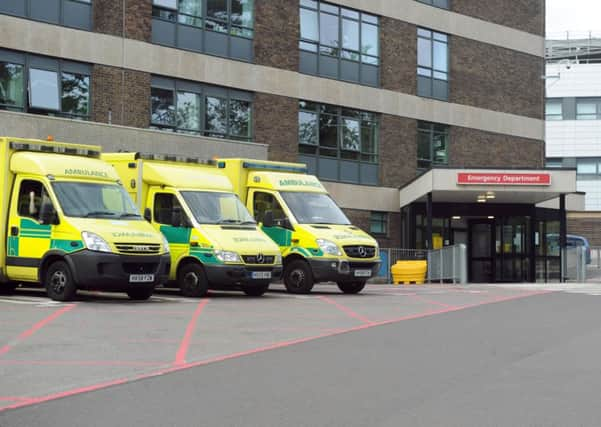Calls for action as delays put pressure on fire service's co-responder unit


Now he is calling for urgent discussions to take place to address the issues at the hospital in Cosham to alleviate the strain.
Cllr Roger Price, who is on Hampshire County Council’s Fire Authority and represents Portchester on Fareham Borough Council, said he had seen a sharp increase in the number call-outs for Portchester fire station’s co-responder unit.
Advertisement
Hide AdAdvertisement
Hide AdHe said: ‘On a couple of occasions recently there have been no ambulances available and it has only been the co-responder covering the greater-Portsmouth area medically.
‘The co-responder cannot transport anybody to hospital, all they can do is support until an ambulance arrives.
‘In general terms, I am appalled that there have been times when there are no ambulances available.’
The co-responder unit, which is a car manned by one firefighter, is designed to be deployed quickly to reach people in medical need and stabilise them before they are backed up by an ambulance.
Advertisement
Hide AdAdvertisement
Hide AdSince it was introduced in 2013 at the retained fire station, Cllr Price said the calls have more than doubled – with 252 calls last month, compared to 115 in the same month in 2015.
He also said that one weekend in January saw the service called out 38 times.
Cllr Price said the service attended 1,600 calls from December 2013 until February 2015, and this has increased to 1,584 between March 2015 and January 2016.
Nic Morecroft, lead community response manager for South Central Ambulance Service NHS Foundation Trust, said that the co-responder scheme had expanded.
Advertisement
Hide AdAdvertisement
Hide AdShe added that the figures for Portchester were an anomaly due to Scas increasing the number of hours it pays Portchester for from 62 in January 2015 to 144 in January 2016.
And she said the number of full-time equivalent posts at Portchester had increased from 10 to 12 to support the introduction of the co-responding work, also funded by Scas.
She said: ‘Scas values the work of all its co-responders and when co-responders are sent to a scene first – because they are the closest, available and most appropriate resource – they are always backed up by a Scas ambulance crew.
‘The co-responder scheme is not designed as a replacement to a primary ambulance service.
Advertisement
Hide AdAdvertisement
Hide Ad‘It provides patients in life-threatening emergencies with a greater chance of survival and recovery by getting appropriate, qualified and emergency first aid trained staff to the scene as quickly as possible.’
She said the demand for Scas ambulance to attend life-threatening incidents has increased by 60 per cent from 2011/12 to 2014/15.
Ms Morecroft added: ‘This comes at a time when fire crews nationally are attending about half the call-outs for fires they did 10 years ago.
‘Our ability to increase the number of co-responders across Hampshire has helped us to prioritise our resources as demand increases to those who need us most as quickly as possible, and provide residents with a safe, effective and comprehensive emergency response service.’
In Hampshire there was a further 10 per cent decline in the number of call-outs fire crews attended in 2014/15 compared to 2013/14.